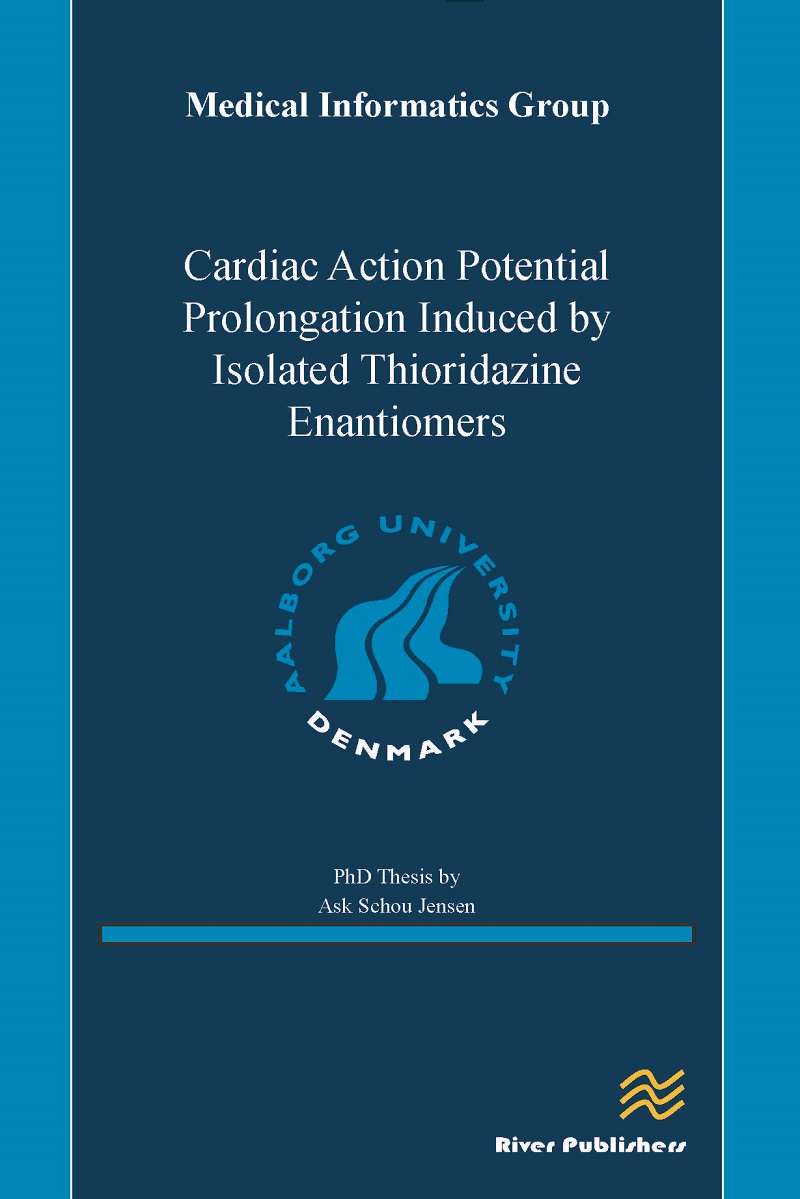River Publishers Series in open
Cardiac Action Potential Prolongation Induced by Isolated Thioridazine Enantiomers
Author: Ask Schou Jensen, Department of Health Science and Technology, Aalborg University, Denmark
The antipsychotic drug thioridazine has shown promising effects against multi-drug resistant microbial diseases including tuberculosis. These effects include the ability to restore the effect of previously ineffective conventional antibiotics. However, thioridazine is also known to cause a risk of potentially fatal cardiac arrhythmia, which presents a considerable safety problem. However, thioridazine actually consists of two similar but chemically distinct molecules. Both of these are effective against microbes, but the antipsychotic effect is primarily due to the (+)-thioridazine molecule and not (-)-thioridazine. This thesis describes an investigation into the effects of the isolated molecules on the electrical activity of heart. This was done by experimental measurement of the effects of these molecules on individual muscle cells from the rabbit heart, and through detailed computational modeling of these effects. This investigation shows that isolated (-)-thioridazine also causes less prolongation of the electrical activity in the rabbit ventricular heart cell, indicating that (-)-thioridazine may have both reduced neurologic and cardiac side effects. This means that it is possible that isolated (-)-thioridazine can provide a safer treatment for multidrug resistant microbial diseases.
Differential effects of thioridazine enantiomers on action potential duration in rabbit papillary muscle
